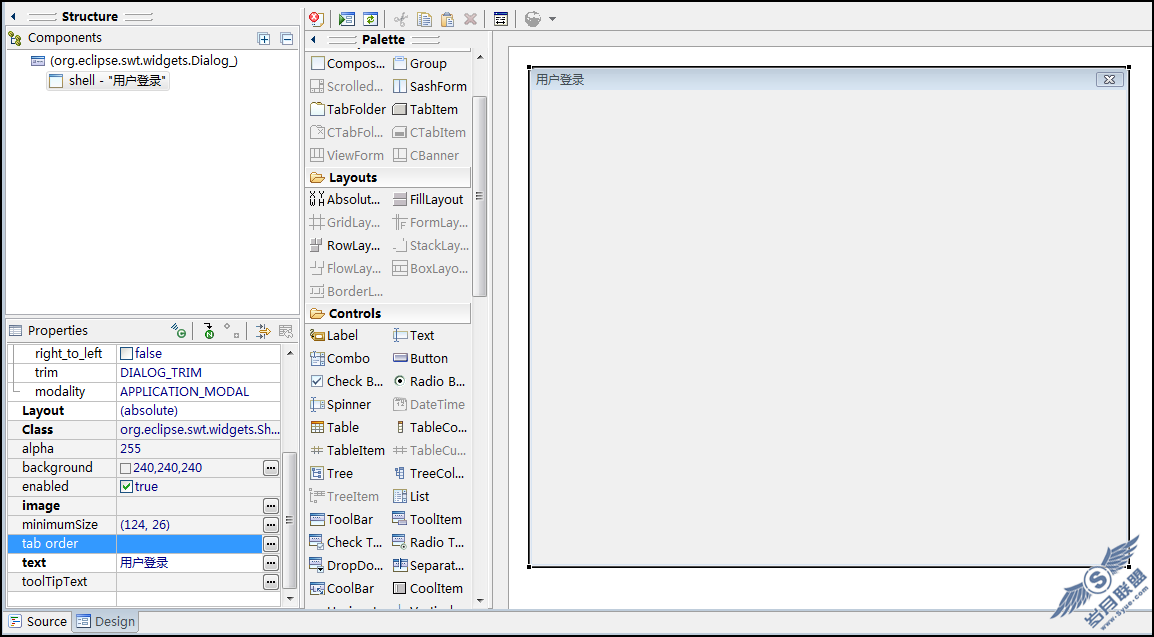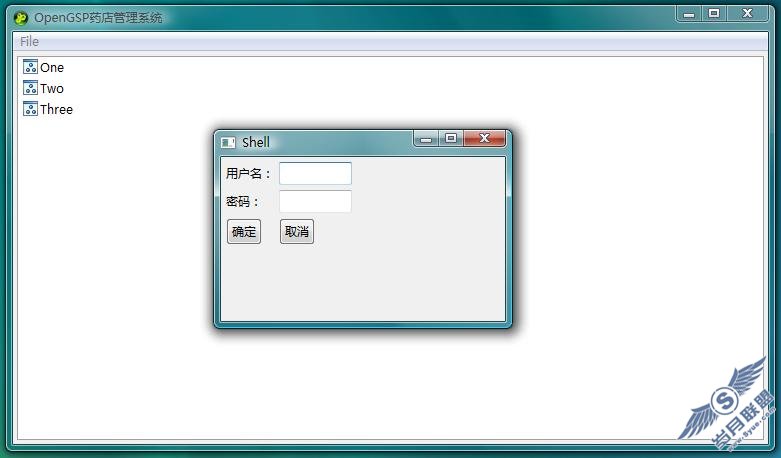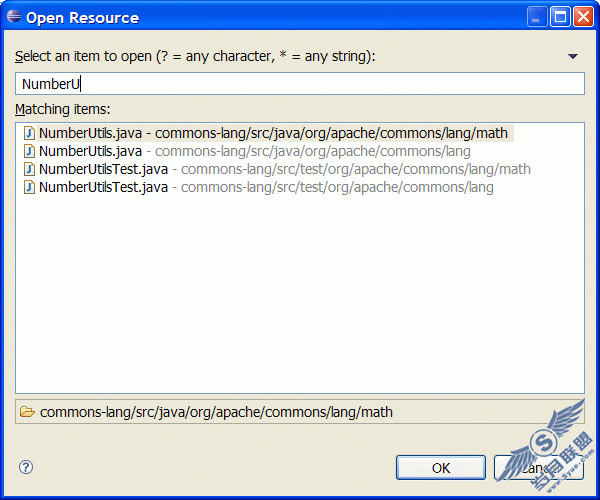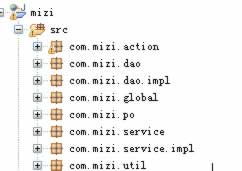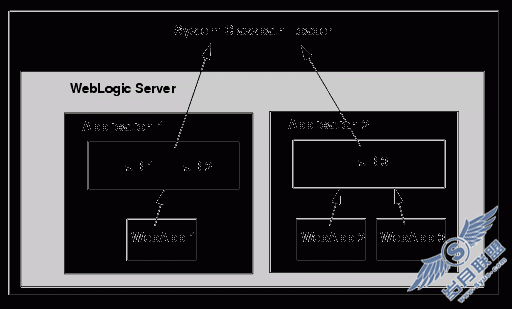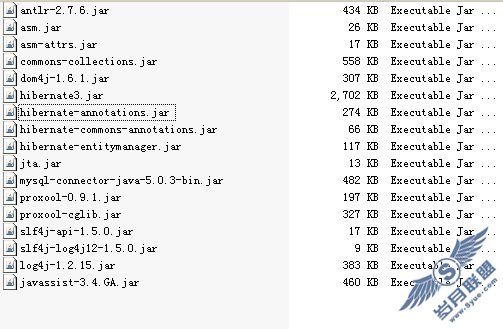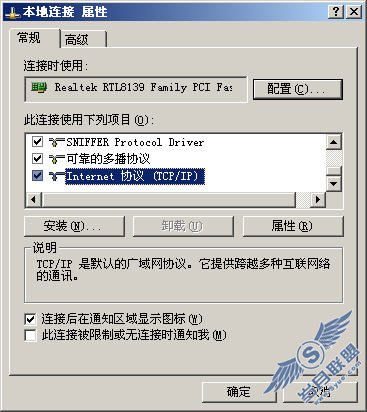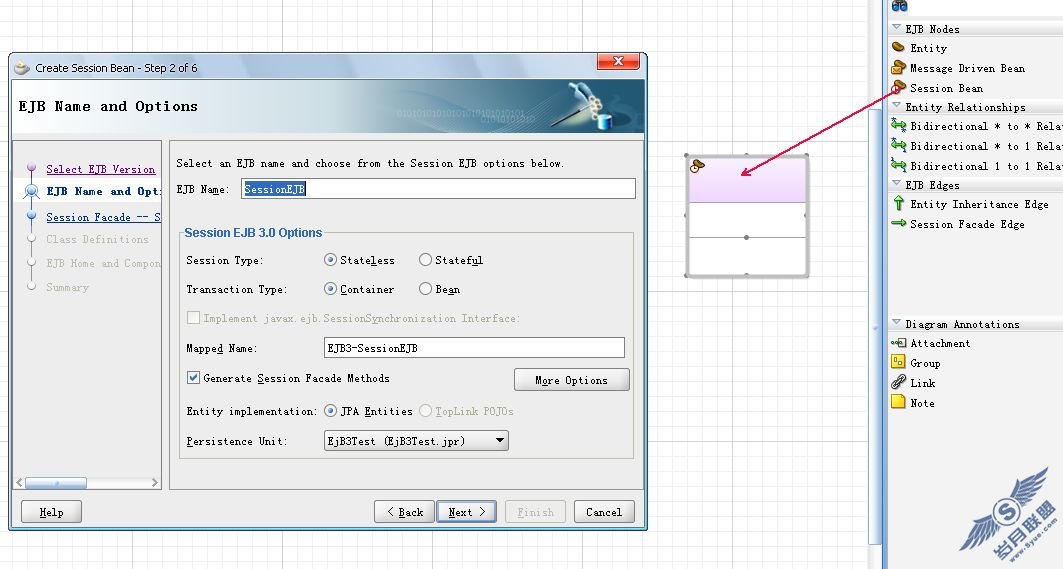SSH之路 (二) SSH的配置 (2) 集成Struts2
上一篇已经讲了Spring2.5的配置,这章讲的就是怎么在Spring2.5上集成Struts.
三,在Spring2.5 集成 Struts2
3.1 修改现有的web.xml .
加上下面两段代码:
<filter>
<filter-name>struts2</filter-name>
<filter-class>org.apache.struts2.dispatcher.FilterDispatcher</filter-class>
</filter>
<filter-mapping>
<filter-name>struts2</filter-name>
<url-pattern>/*</url-pattern>
</filter-mapping>
3.2 完整的web.xml代码
<?xml version="1.0" encoding="UTF-8"?>
<web-app id="WebApp_ID" version="2.4" xmlns="http://java.sun.com/xml/ns/j2ee" xmlns:xsi="http://www.w3.org/2001/XMLSchema-instance" xsi:schemaLocation="http://java.sun.com/xml/ns/j2ee http://java.sun.com/xml/ns/j2ee/web-app_2_4.xsd">
<!-- ###################################### -->
<!-- ########## Struts2 ################## -->
<!-- ###################################### -->
<!--
* Struts2的主要的Filter,负责四个方面的功能:
* (1)执行Actions
* (2)清除ActionContext
* (3)维护静态内容
* (4)清除request生命周期内的XWork的interceptors
* 另注:该过滤器应该过滤所有的请求URL。一般被设置为/*
************ -->
<filter>
<filter-name>struts2</filter-name>
<filter-class>org.apache.struts2.dispatcher.FilterDispatcher</filter-class>
</filter>
<!-- ###################################### -->
<!-- ########## Spring2 ################## -->
<!-- ###################################### -->
<!--
* [ <context-param></context-param ] =>用来设定web站台的环境参数
* [ <param-name></param-name> ] (子元素)=> 用来指定参数的名称
* [ <param-value></param-value> ] (子元素)=> 用来设定参数值
* ************
* 从类路径下加载spring的配置文件, 多个配置文件可以用逗号和空格区分
* classpath: 关键字特指类路径下加载
******************** -->
<context-param>
<param-name>contextConfigLocation</param-name>
<param-value>classpath:applicationContext*.xml</param-value>
</context-param>
<!--
* [<listener></listener>]=>用来设定监听接口
* [<listener-class></listener-class>](子元素)=>定义Listener的类名称
* *******
* 负责启动spring的监听器
* 它将引用处的上下文参数获得spring配置文件地址
* 指定Spring提供的ContextLoaderListener Web 容器监听器,
* 该监听器在web容器启动时自动运行并且根据ContextLoaderListener参数
* 获取Spring配置文件,并启动Spring容器。
************** -->
<listener>
<listener-class>
org.springframework.web.context.ContextLoaderListener
</listener-class>
</listener>
<filter-mapping>
<filter-name>struts2</filter-name>
<url-pattern>/*</url-pattern>
</filter-mapping>
<display-name>miziStudy</display-name>
<welcome-file-list>
<welcome-file>index.html</welcome-file>
<welcome-file>index.htm</welcome-file>
<welcome-file>index.jsp</welcome-file>
<welcome-file>default.html</welcome-file>
<welcome-file>default.htm</welcome-file>
<welcome-file>default.jsp</welcome-file>
</welcome-file-list>
</web-app>
3.3 在src下面新建struts.xml

3.4 修改struts.xml内容修改为
<?xml version="1.0" encoding="UTF-8" ?>
<!DOCTYPE struts PUBLIC
"-//Apache Software Foundation//DTD Struts Configuration 2.0//EN"
"http://struts.apache.org/dtds/struts-2.0.dtd">
<struts>
<!-- ############################# -->
<!-- ############ 通过这个配置指定使用struts-plugin.xml中的StrutsSpringObjectFactory作为创建Action的工厂类################# -->
<!-- ############################# -->
<constant name= "struts.objectFactory" value="spring" />
</struts>
3.5 导入struts2包

要注意的是 struts2-spring-plugin-2.0.11.1.jar 有了它,struts2就可以与spring整合了
3.6 测试struts2 与spring 整合成功。
OK,我们就来仿照之前我们测试spring的例子( 忽然发现我包名起的不好,之后我会专门列出一篇来讲命名规范,现在也只能将错就错了 )
3.6.1 在src下面建一个叫test.action的包并创建一个叫Hello.java的文件

并修改Hello.java的内容如下:
package test.action;
import com.opensymphony.xwork2.ActionSupport;
@SuppressWarnings("serial")
public class Hello extends ActionSupport {
//获得表单参数值
private String username;
private int age;
private String sex;
public String getUsername() {
return username;
}
public void setUsername(String username) {
this.username = username;
}
public int getAge() {
return age;
}
public void setAge(int age) {
this.age = age;
}
public String getSex() {
return sex;
}
public void setSex(String sex) {
this.sex = sex;
}
private String hello;
public void setHello(String hello) {
this.hello = hello;
}
public String getHello() {
return hello;
}
@Override
public String execute() throws Exception {
hello = "Hello:" username ";u is " age " age; and u is a " sex;
return SUCCESS;
}
}
3.6.2 在application.xml加上bean:(把昨天做的例子删掉,要不tomcat启动不起来)
<?xml version="1.0" encoding="UTF-8"?>
<beans xmlns="http://www.springframework.org/schema/beans"
xmlns:xsi="http://www.w3.org/2001/XMLSchema-instance"
xmlns:p="http://www.springframework.org/schema/p"
xmlns:aop="http://www.springframework.org/schema/aop"
xmlns:tx="http://www.springframework.org/schema/tx"
xsi:schemaLocation="http://www.springframework.org/schema/beans http://www.springframework.org/schema/beans/spring-beans-2.5.xsd
http://www.springframework.org/schema/aop http://www.springframework.org/schema/aop/spring-aop-2.5.xsd
http://www.springframework.org/schema/tx http://www.springframework.org/schema/tx/spring-tx-2.5.xsd">
<!--
* 这里bean的ID对应的是 struts.xml action的class
****************-->
<bean id="Hello" class="test.action.Hello" scope="prototype"></bean>
</beans>
3.6.3 修改struts.xml 内容:
<?xml version="1.0" encoding="UTF-8" ?>
<!DOCTYPE struts PUBLIC
"-//Apache Software Foundation//DTD Struts Configuration 2.0//EN"
"http://struts.apache.org/dtds/struts-2.0.dtd">
<struts>
<!-- ############################# -->
<!-- ############ 通过这个配置指定使用struts-plugin.xml中的StrutsSpringObjectFactory作为创建Action的工厂类################# -->
<!-- ############################# -->
<constant name= "struts.objectFactory" value="spring" />
<package name="mizi" namespace="" extends="struts-default">
<!-- ############################# -->
<!-- ############ 注意,现在action的class属性不再是类的名字了,而是在spring中的bean的id ################# -->
<!-- ############################# -->
<action name="Hello" class="Hello">
<result>/hello.jsp</result>
</action>
</package>
</struts>
3.6.4 在webContent目录下创建两个jsp页面

3.6.4.1 index.jsp
<%@ page contentType="text/html; charset=UTF-8" %>
<%@ taglib prefix="s" uri="/struts-tags" %>
<!DOCTYPE HTML PUBLIC "-//W3C//DTD HTML 4.01 Transitional//EN">
<html>
<body>
<s:form action="Hello">
<s:textfield name="username" label="u name"/>
<s:textfield name="age" label="u age" />
<s:textfield name="sex" label="u sex" />
<s:submit />
</s:form>
</body>
</html> 3.6.4.2 hello.jsp
<%@ page contentType="text/html; charset=UTF-8" %>
<%@ taglib prefix="s" uri="/struts-tags" %>
<!DOCTYPE HTML PUBLIC "-//W3C//DTD HTML 4.01 Transitional//EN">
<html>
<body>
<s:property value="hello"/>
</body>
</html>
3.6.5 在浏览器中输入 http://localhost/miziStudy
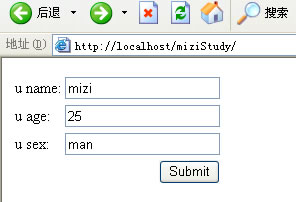
并在输入框输入信息, 注意age为整数
如果你最后得出的结果和我一致,那么恭喜你,string struts 集成成功

OK , 今天到此为止, 下次我们将继续集成 Hibernate
